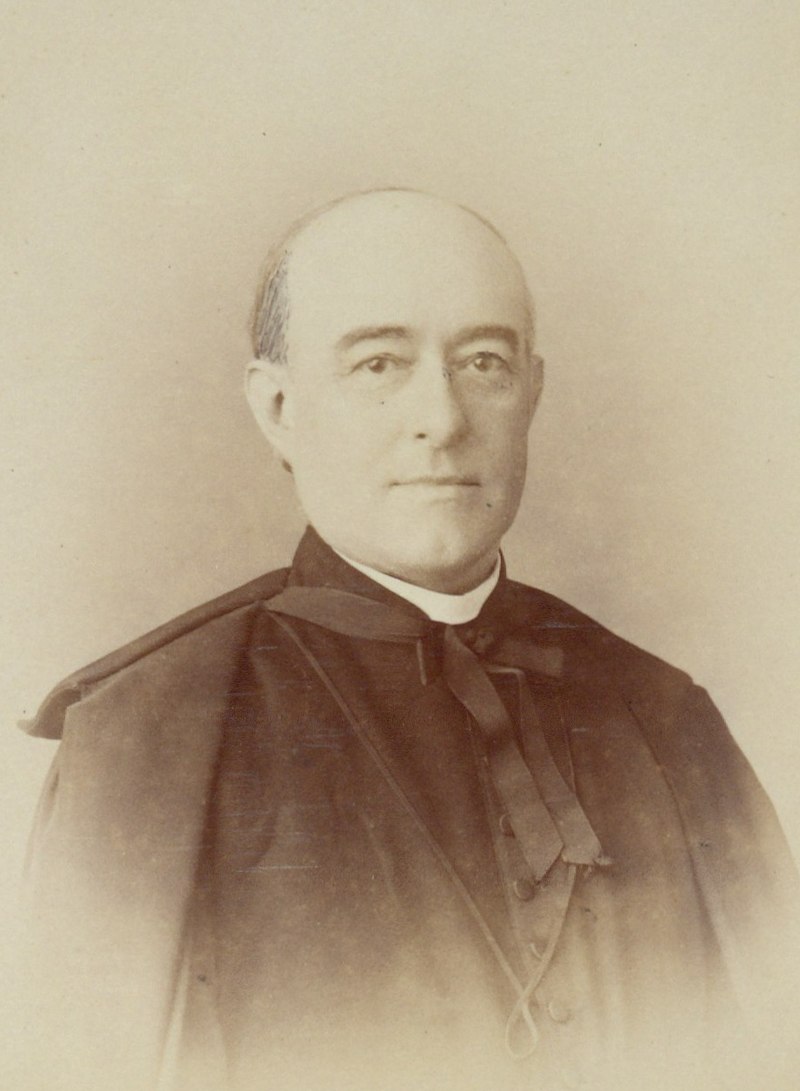Aurelio Porfiri
We have already talked about how the investigation of ancient sources was extremely important to understand the development of the liturgy and to favor the type of progress that did not deny recent history, but enhanced its connections and turning points, making corrections where necessary. In the second half of the nineteenth century, this work intensified, but the research work was sometimes intertwined with certain ideas that the Church could not and should not accept, such as those of liberal Catholicism, which later resulted in modernism – a multifaceted thought movement that would challenge Catholic thinking also on the academic level.
A prominent scholar at that time was the French priest Louis Duchesne. He was a pupil of Giovan Battista De Rossi, whom we have already met, and taught not only in France but also in Rome where he had important positions. Particularly important was his study of the Liber Pontificalis, a medieval text of great importance that contains biographies of Popes who give us information about the liturgical life of the period. Just as important are his studies on the origins of Christian worship.
Duchesne applied a rigorously historical method in his scholarship. Although in this period, all of this could be viewed with suspicion, as at times the supernatural element was completely eliminated by “naturalizing it” (a theological trend that remains very much alive up to our time). A text of the history of the Church by Duchesne was in fact put on the index of forbidden books, but it must be said that he submitted to the sentence. Mario Niccoli gives a sometimes severe judgment, saying that “Duchesne turns out to be a loyal scholar to the most rigid and scrupulous historical method accompanied by a remarkable knowledge of the archaeological, liturgical, topographical, theological and political problems that involved the arguments he developed. However, it should be noted that his historical reconstructions, always precise, always suggestive due to the bewitching vividness with which the external events of the facts are narrated, sometimes leave the impression that the profound reasons why religious movements are born and develop are not always been intuited by Duchesne and exactly evaluated” (1). I do not know how much the judgment corresponds to the truth, the fact is that there are controversial aspects of his, albeit important, research.
Raffaello Morghen (2) deals with Duchesne’s contact with the modernist environment in a study, in which it is not by chance that he linked Louis Duchesne with one of the protagonists of modernism, Ernesto Buonaiuti, of whom Morghen was a close friend. Morghen says: “The relations between the two scholars had to, nevertheless, remain frequent even after 1907, and marked by a sure solidarity of scientific thought, if not entirely in conformity with a common attitude towards the ecclesiastical authorities. Unlike, in fact, his friend Turchi, linked by great affection to Msgr. Duchesne, who, in turn, received him ‘with truly paternal kindness in the hospitable French School’ (these are the very words of Turchi), Buonaiuti did not hesitate, on several occasions, to speak with a certain detachment of the great French historian, who yet he admired. This was perhaps due to ‘prudence,’ which was attributed to Duchesne, as the priest’s reluctance to face the most burning questions, imposed by the rigor of historical research: that ‘prudence’ that still in 1925, Turchi passionately defended as due not to ‘calculation,’ but ‘to the Roman environment’ (you mean, of the Curia) in which Duchesne had lived all his life and ‘which obliges (so says Turchi, with full solidarity of behavior) to round the corners and see from another point of view certain decisions’”. Certainly, it is not easy to judge many years later, but despite his limitations, Duchesne’s is a scholarly figure that certainly should not be forgotten.
(1) NICCOLI, Mario (1932). Duchesne, Louis-Marie-Olivier. Enciclopedia Italiana.
(2) MORGHEN, Raffaello (1975). Louis Duchesne e Ernesto Buonaiuti storici della chiesa e del cristianesimo. In: Mgr Duchesne et son temps. Rome : École Française de Rome. pp. 375-393. (Publications de l’École française de Rome, 23)
(Photo: Wikipedia)


 Follow
Follow


